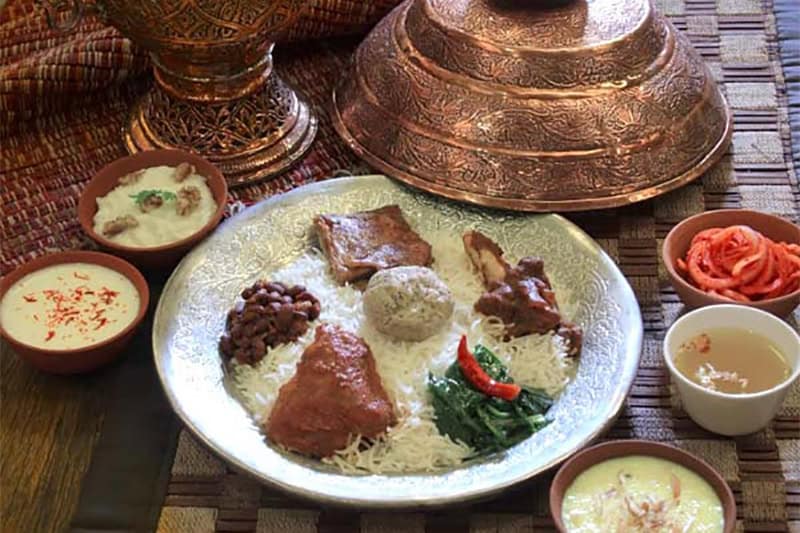Abdul Gani Mir of Saidpora area in Srinagar district narrowly missed saving over Rs 10 lakh which he had to spend on the traditional Kashmiri feast called ‘Wazwan’ served to guests during the marriage of his son Tariq Ahmad.
Tariq was married in the last week of July and the extended feast served to relatives, neighbours and friends by his father continued till August 2.
“Had Tariq’s marriage been scheduled around August 5, I would have saved over Rs 10 lakh that was spent on ‘Wazwan’ during the celebrations,” Abdul Gani Mir said.
Mir’s sarcasm is rooted in reality.
More than 400 marriage parties across Kashmir have been cancelled since the authorities imposed restrictions on August 5 to maintain law and order after the integration of Jammu and Kashmir with the rest of the country.
Local television channels and newspapers carried out dozens of public notices daily from families cancelling marriage parties because of the uncertainties in the Kashmir Valley.
The silver lining amid this dark clouds is that for the first time in Kashmir, marriages are being celebrated without any fanfare and elaborate feasting that had otherwise become a social evil.
“The worst hit by the pompous feasting and wasteful expenditure in marriages were the poor and middle class families,” said Bashir Ahmad War, who celebrated the marriage of his daughter Isma with austerity even before others were forced to do so by the circumstances.
“In the race to keep up their false prestige, poor parents of both boys and girls were burdened by huge debts to arrange funds for the elaborate marriage feast,” said War.
Just three persons came with the ‘baraat’ including the groom when Isma was married during the first fortnight of July. There was no ‘Wazwan’ for the groom’s party. A simple cup of tea was served after which the bride left War’s home.
Isma’s marriage has somehow set a trend of austerity although it was forced on others by the security restrictions.
“Hundreds of marriages have been held since August 5 in the simplest possible manner. Friends and relatives accompany the groom to the bride’s house and the traditional ‘Wazwan’ is given a miss,” said Hassan Rather, who attended one such marriage in Chattabal area of Srinagar’s old city.
The good thing is that despite the restrictions, the security forces have been providing free passage to the marriage parties.
“No questions are asked after the security forces see the groom wearing the traditional attire inside a vehicle,” said Abdul Majid of Baramulla district.
Savings worth crore have been made by the families whose children were married after August 5, when restrictions were imposed in Kashmir.
Interestingly, millions of rupees have been lost by the traditional chefs called the ‘Wazas’, who specialised in preparing the ‘Wazwan’.
‘Wazwan’ is a mind boggling elaborate Kashmiri cuisine based on nearly a dozen lamb mutton dishes cooked on simmering firewood over hours.
Ghulam Nabi is the president of the local chefs’ association who lives in the old city’s Aali Kadal area of Srinagar. He says his profession has been devastated by the restrictions.
“Most of Kashmir’s marriages are held in August, September and October. It is during this marriage season that the ‘Wazas’ make their annual earnings.
“Our profession has been the worst hit by the circumstances. How do we sustain our families till next year is anybody’s guess,” said Ghulam Nabi, who obviously appears disturbed by the beating his profession has taken in Kashmir.

